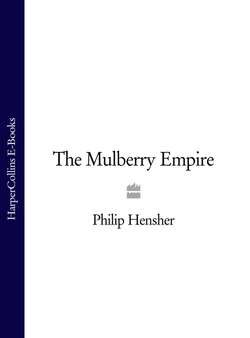Читать книгу The Mulberry Empire - Philip Hensher - Страница 39
6.
ОглавлениеHasan flexibly raised himself like a deer from where he squatted, and, salaaming, left his father chewing thoughtfully on a twig in the inner courtyard of the Bala Hissar’s inner fortress, waiting on the pleasure of the Amir. He set off towards the Englishman’s house. The sentries braced themselves in half-salute as he left the palace by the main gates. He liked that. Hasan knew perfectly well where the Englishman was living. All Kabul knew where he was, knew all about his habits, his interests, the hours he kept and the people he saw. You could, they said in the bazaar, take him anything you found, anything you had. A broken old lamp, a worthless old coin you found in the earth, anything you happened upon, and he would give you money for it with cries of delight like a monkey’s howl, and then spend long minutes staring at it before opening his book and scribbling down in it. The boys in the bazaar abandoned themselves in merriment, the soles of their feet to the sky, at this last incredible detail. But he did not seem like a holy man, since he drank a good deal, a shocking amount, and the whole of Kabul, from the storytelling beggars crouched outside the limits of the bazaar to the gossiping nobles in the august silent halls of the Bala Hissar itself, knew precisely what he liked to do after nightfall with whatever boys presented themselves smiling at the gate of his secluded little house. Everyone knew about him. It was true that few had seen him, since he stayed inside like a woman, sending out for his needs; but everyone knew about him. There was an incredible party trick half a dozen boys could now perform, an incredulous account of his gabbling fantastic Persian, complete with the wildest gestures. Hasan was a slow serious boy, not given to laughter, always sitting wide-eyed and solemn while his companions retailed one hilarity after another. But he had laughed at the gulping mania of the impersonation, and hoped that now, brought up against the original of what was currently the city’s favourite joke, he could keep himself from hilarity.
He went directly down the hill from the fortress, ignoring the calls which came his way, and out through the great bazaar. He had lived here all his life, and could burrow through the deep entangled streets as well as any ragged urchin. They called out to him, knowing who he was, wondering at this boy in dazzling imperial white, this boy with the lovely cross face. They knew who he was – his dress proclaimed him – but there was already something in him, despite his blank simplicity, his effortless blank visage, which made the street hang back. They called out to him, but, awed, cast their eyes down before he could respond. They did not want to be the sort of people who called out to Hasan, son of Khushhal, the famous angel of the princely house, and they cast their eyes to the floor, dazzled, in modesty, before he could speak back to them. But he did not respond to their calls, and never had. Even those who called out to him knew this, before they made a sound. He was untouchable, virtuous, noble; the sun shone between the road and the soft pale soles of his feet. He was too good, they said, to walk the earth, and yet he walked the earth, which knew his virtue.
Hasan passed on through the parting crowds. The long twisting call of the muezzin was just beginning, like a great bird singing its inscrutable vowels, and, soon, Kabul would turn with regret from Hasan and, summoned, go to wash, and pray for its own sins. Hasan walked on, into the street of the shoemakers. Here it was that the Englishman had his house. He had taken it from the widow Khadija. The main artery of the quarter, now quickly emptying, was broad and fine, shaded with limes. Every thirty paces or so, a small half-street, blind-ended, like a three-sided courtyard, where the houses were. In the fourth of these was the widow Khadija’s house. The houses in this quarter of the city barely had windows or doors onto the street; they were built for the summer’s heat, the winter’s cold, to withstand a siege. They were solid houses, but not large. Behind the thick walls there was only a small garden and a few square rooms, Hasan knew; his old fencing master had lived in one. But as he stood there, he felt that behind the heavy coarse wall and deep-set tiny door, there could lie anything at all. He stood in front of the Englishman’s door. Silly! It was like any other! He felt no nerves. Nervousness was not part of him, but as he stood there, with his innocent cross face, he surely felt something, the barefoot emissary of the Amir with a dagger in his belt, the lovely ambassador between empires. He served an unknowing purpose, a purpose opaque to everyone. He served the implacable veiled purpose of the Emperor’s marvellous mind. There was a chatter, from within, like the chatter of birds, of monkeys, of women. But it was not the noise of birds. Hasan raised his soft princely hand to his soft pale face, just once. He pushed at the door. It gave; and, making no noise, he entered the house of the Englishman.
